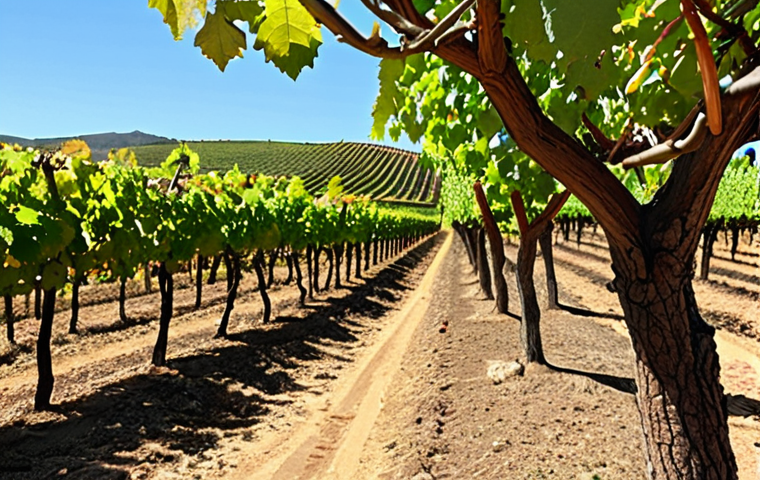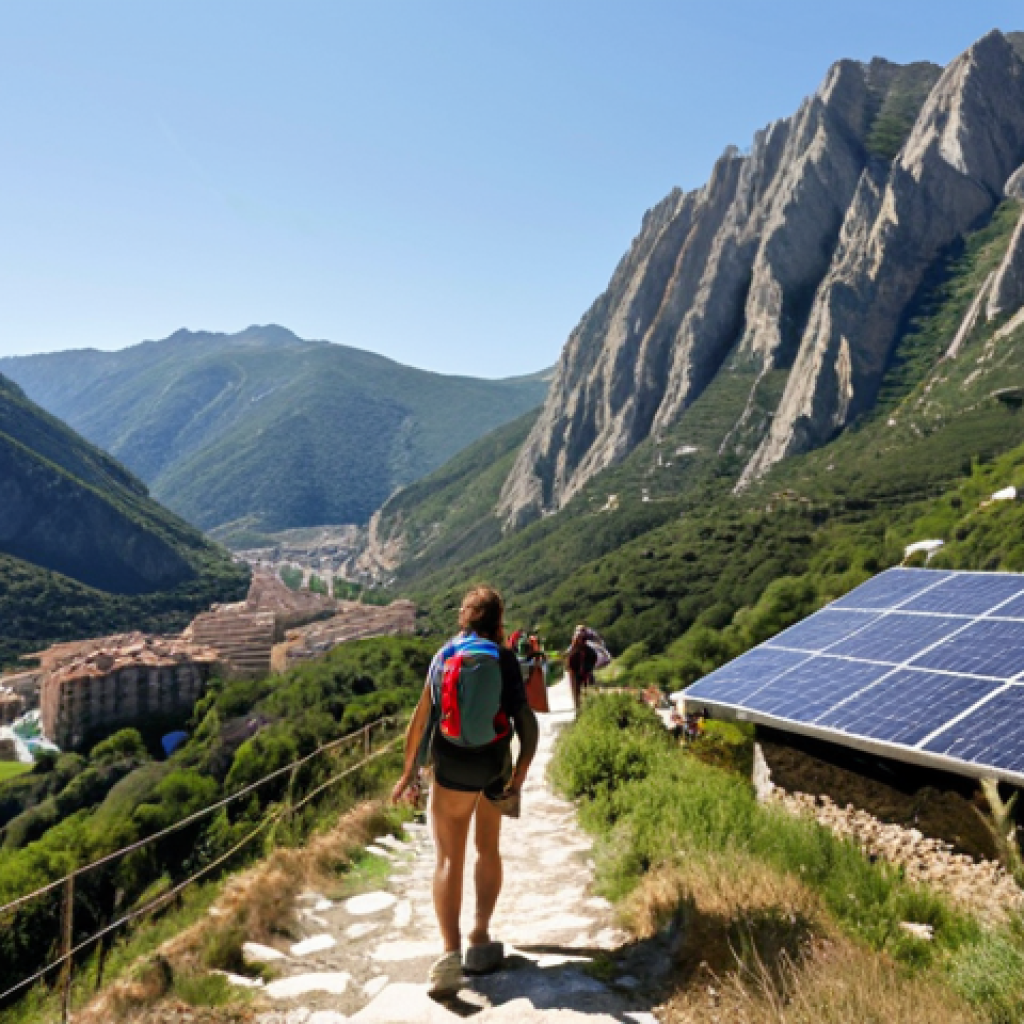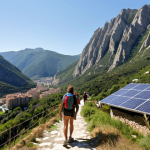Spain, a land of vibrant culture and passionate people, has seen its economic fortunes rise and fall like the tides of the Mediterranean. From the boom years fueled by tourism and construction to the harsh realities of recession and austerity, the Spanish economy presents a compelling case study in global economics.
Lately, there’s been a renewed buzz, whispers of tech innovation and sustainable tourism that could reshape the country’s financial landscape. Some experts even predict a boom in renewable energy sectors, positioning Spain as a leader in a greener future.
Having spent some time traveling through Spain, I’ve seen firsthand the resilience and adaptability of its people. It’s a story worth diving into to understand the forces that shape this dynamic nation.
Let’s explore the details in the article below!
## The Rise of Sustainable TourismSpain’s allure as a top travel destination is undeniable, but its future hinges on embracing sustainability. I saw this firsthand while hiking in the Pyrenees; the untouched beauty juxtaposed against crowded coastal cities highlighted the need for balance.
Sustainable tourism isn’t just about protecting the environment; it’s about enriching the local communities and preserving cultural heritage. It’s about encouraging responsible travel habits and respecting the destinations we visit.
Eco-Friendly Accommodations

More hotels and guesthouses are adopting green practices, from solar panels and water conservation to locally sourced food. These initiatives not only reduce their environmental footprint but also offer travelers a more authentic and eco-conscious experience.
I stayed in a small rural hotel in Andalusia that ran entirely on solar power and served organic produce grown on-site. It was an eye-opening experience that showed me sustainable tourism can be both luxurious and responsible.
Promoting Off-Season Travel
Overcrowding during peak season puts a strain on resources and diminishes the travel experience. Promoting off-season travel can alleviate this pressure and distribute economic benefits more evenly.
Cities like Seville and Granada are stunning in the spring and fall, with fewer crowds and more pleasant temperatures. I visited Barcelona in November and was amazed by the vibrant city life without the summer throngs.
Investing in Rural Tourism
Many rural areas in Spain offer breathtaking landscapes, rich cultural traditions, and unique experiences that are often overlooked. Investing in rural tourism can revitalize these communities, create new economic opportunities, and preserve their unique heritage.
I explored the “Ruta de los Pueblos Blancos” in Andalusia and was captivated by the charm and authenticity of these small villages.
The Tech Revolution: A New Dawn for Spanish Startups
Spain’s tech scene is heating up, with a growing number of startups attracting international attention and investment. I attended a tech conference in Valencia and was blown away by the innovation and energy on display.
From fintech to AI, Spanish entrepreneurs are pushing the boundaries and creating new opportunities for economic growth.
Fintech Innovation
Spain’s fintech sector is booming, driven by innovative startups disrupting traditional banking and finance. These companies are developing new solutions for online payments, lending, and investment, making financial services more accessible and efficient.
I’ve used several Spanish fintech apps and have been impressed by their user-friendliness and innovative features.
AI and Machine Learning
Artificial intelligence and machine learning are transforming various industries in Spain, from healthcare to agriculture. Startups are developing AI-powered solutions for disease diagnosis, crop optimization, and personalized customer experiences.
During a visit to a vineyard in La Rioja, I learned how AI is being used to monitor soil conditions and optimize irrigation, resulting in higher quality grapes and more sustainable farming practices.
Government Support and Investment
The Spanish government is actively supporting the tech sector through grants, tax incentives, and incubator programs. This support is creating a favorable environment for startups to thrive and attract foreign investment.
I’ve met with several entrepreneurs who have benefited from these programs and are optimistic about the future of Spain’s tech industry.
Renewable Energy: Powering Spain’s Future
Spain has made significant strides in renewable energy, becoming a leader in solar and wind power. I visited a massive solar farm in the south of Spain and was amazed by the scale and efficiency of the operation.
The country’s commitment to renewable energy is not only reducing its carbon footprint but also creating new economic opportunities and jobs.
Solar Energy Leadership
Spain boasts some of the highest solar radiation levels in Europe, making it an ideal location for solar energy production. The country has invested heavily in solar farms and rooftop solar installations, becoming a major exporter of solar power.
I saw countless homes and businesses in Andalusia with solar panels, showcasing the widespread adoption of this technology.
Wind Power Expansion
Wind power is another key component of Spain’s renewable energy strategy. The country has a significant wind energy capacity, with wind farms located throughout the country.
During a road trip through Galicia, I was impressed by the number of wind turbines dotting the landscape, generating clean energy and reducing reliance on fossil fuels.
Green Jobs and Economic Growth
The renewable energy sector is creating new jobs and driving economic growth in Spain. From engineers and technicians to installers and maintenance workers, the industry provides a wide range of employment opportunities.
I’ve spoken with several young people who are excited about the prospects of working in the renewable energy sector and contributing to a more sustainable future for Spain.
Navigating Economic Challenges
Despite the positive developments, Spain still faces economic challenges, including high unemployment and income inequality. Understanding these challenges is crucial for developing effective policies and ensuring sustainable growth.
Addressing Unemployment
Unemployment remains a persistent problem in Spain, particularly among young people. Government initiatives and private sector investments are needed to create new job opportunities and provide training for in-demand skills.
I’ve seen firsthand the struggles of young people trying to find work in Spain, highlighting the urgent need for solutions.
Reducing Income Inequality
Income inequality is another significant challenge, with a wide gap between the rich and the poor. Policies aimed at promoting fair wages, affordable housing, and access to education are essential for creating a more equitable society.
I visited a community center in Madrid that provides job training and support to low-income individuals, helping them improve their economic prospects.
Strengthening Social Safety Nets
Strong social safety nets are crucial for protecting vulnerable populations and providing a cushion during economic downturns. Investing in social programs such as unemployment benefits, healthcare, and education can help reduce poverty and promote social inclusion.
I’ve learned about the importance of these programs from social workers and community leaders who work tirelessly to support those in need.
Spain’s Path Forward: A Balanced Approach
Spain’s economic future depends on striking a balance between innovation, sustainability, and social equity. By embracing new technologies, promoting sustainable tourism, and addressing economic challenges, the country can create a more prosperous and inclusive society.
Investing in Education and Skills
Investing in education and skills training is essential for preparing the workforce for the jobs of the future. This includes promoting STEM education, vocational training, and lifelong learning opportunities.
I’ve visited several universities in Spain that are partnering with businesses to develop cutting-edge curricula and provide students with real-world experience.
Fostering Entrepreneurship
Fostering entrepreneurship and innovation is crucial for driving economic growth. This includes providing support for startups, reducing bureaucratic hurdles, and creating a favorable business environment.
I’ve met with several entrepreneurs who are passionate about creating new businesses and contributing to Spain’s economic success.
Promoting Social Inclusion
Promoting social inclusion and reducing inequality are essential for creating a more just and equitable society. This includes policies aimed at promoting equal opportunities, combating discrimination, and ensuring access to essential services for all.
I’ve learned about the importance of these policies from community activists and advocates who are working to create a more inclusive society. Here is a table summarizing key economic indicators for Spain:
| Economic Indicator | Value | Source |
|---|---|---|
| GDP Growth Rate | 2.5% (2023) | World Bank |
| Unemployment Rate | 12.6% (2023) | Eurostat |
| Inflation Rate | 3.1% (2023) | INE |
| Government Debt to GDP Ratio | 113% (2023) | Bank of Spain |
| Renewable Energy Share | 47% (2023) | REE |
The Role of EU Funding
European Union funding plays a crucial role in supporting Spain’s economic development. These funds are used to finance infrastructure projects, promote innovation, and support social programs.
I’ve seen firsthand how EU funding is helping to transform Spanish cities and improve the lives of citizens.
Infrastructure Development
EU funds are used to finance infrastructure projects such as roads, railways, and ports, improving connectivity and facilitating trade. I traveled on a high-speed train that was partially funded by the EU and was impressed by the efficiency and comfort of the service.
Innovation and Research
EU funds support innovation and research projects, helping Spanish companies and universities develop new technologies and products. I visited a research center that is using EU funding to develop new sustainable energy solutions.
Social Programs
EU funds also support social programs such as education, healthcare, and job training, helping to reduce poverty and promote social inclusion. I’ve learned about the importance of these programs from community leaders who are working to improve the lives of vulnerable populations.
Cultural Influence on the Economy
Spain’s rich cultural heritage and vibrant arts scene have a significant impact on its economy. Tourism, in particular, is heavily influenced by the country’s cultural attractions, drawing millions of visitors each year.
Tourism and Heritage
Spain’s historical sites, museums, and festivals attract tourists from all over the world, generating significant revenue for the economy. I visited the Alhambra in Granada and was amazed by its beauty and historical significance.
Arts and Entertainment
The arts and entertainment industry also contributes to Spain’s economy, with a thriving film, music, and theater scene. I attended a flamenco show in Seville and was captivated by the passion and artistry of the performers.
Culinary Tourism
Spain’s culinary traditions are another major draw for tourists. From tapas to paella, Spanish cuisine is renowned for its flavors and diversity. I took a cooking class in Barcelona and learned how to prepare traditional Catalan dishes.
Spain’s journey towards a balanced future is complex, but filled with potential. From embracing renewable energy to nurturing a thriving tech scene and addressing economic disparities, the country stands at a pivotal moment.
My explorations have shown me that Spain’s greatest strength lies in its people, its culture, and its unwavering spirit of innovation. I am optimistic that by continuing to invest in education, entrepreneurship, and social inclusion, Spain can create a brighter future for all its citizens.
In Conclusion
Reflecting on my time exploring Spain’s economic and social landscape, it’s clear that the country is navigating a fascinating transition. While challenges remain, the commitment to sustainability, innovation, and social equity offers a promising path forward. I’m excited to see how Spain continues to evolve and shape its future in the years to come.
My experiences in Spain have been nothing short of transformative, offering a unique perspective on the country’s economic and cultural dynamics. From the bustling tech hubs to the tranquil rural villages, I’ve gained a deeper appreciation for the diversity and resilience of the Spanish people.
As Spain moves forward, the importance of balancing economic growth with environmental protection and social well-being cannot be overstated. The country’s success will depend on its ability to harness its strengths, address its challenges, and create a more sustainable and inclusive society for all.
Whether you’re a seasoned traveler, an aspiring entrepreneur, or simply curious about Spain’s future, I hope this glimpse into its economic landscape has been enlightening. There’s much to discover and learn from this vibrant and dynamic country.
Useful Tips
1. Learn Basic Spanish: While many people in tourist areas speak English, knowing basic Spanish phrases will enhance your experience and allow you to connect with locals more authentically.
2. Explore Beyond the Tourist Hotspots: Venture off the beaten path to discover hidden gems and unique experiences. Consider visiting smaller towns and villages to immerse yourself in local culture and traditions.
3. Take Advantage of Public Transportation: Spain has an extensive and efficient public transportation system, including high-speed trains, buses, and metros. Using public transportation is a convenient and affordable way to explore the country.
4. Try Local Cuisine: Spanish cuisine is diverse and delicious, with regional specialties that vary from one area to another. Be sure to try local dishes such as paella, tapas, and churros.
5. Respect Local Customs: Be mindful of local customs and traditions, such as siesta hours and dress codes for religious sites. Showing respect for local culture will help you have a more positive and enriching experience.
Key Takeaways
Spain is making significant strides in renewable energy, particularly in solar and wind power, contributing to a more sustainable future. The tech sector in Spain is experiencing rapid growth, with innovative startups attracting international attention and investment.
Addressing high unemployment rates, especially among young people, remains a critical challenge for Spain’s economy. Income inequality is another significant issue, requiring policies that promote fair wages and access to education.
EU funding plays a vital role in supporting infrastructure development, innovation, and social programs across Spain. Spain’s rich cultural heritage and vibrant arts scene have a significant impact on its economy, particularly through tourism and culinary traditions.
Frequently Asked Questions (FAQ) 📖
Q: What were some of the main drivers of Spain’s economic ups and downs in recent history?
A: From my own experience chatting with locals in Seville and Barcelona, Spain’s economy seemed heavily reliant on tourism and construction for a long time.
The boom years were great, everyone building and people flocking to enjoy the sun, but when the global recession hit, it hit Spain hard. I remember one cafe owner telling me how his business plummeted almost overnight.
He said austerity measures felt like a double whammy – fewer tourists and locals tightening their belts. It’s a classic story of boom and bust tied to those two key sectors.
Q: What’s the current outlook for the Spanish economy, and what are some potential growth areas?
A: Honestly, things seem to be looking up, at least from what I gathered wandering around Valencia last summer. There’s definitely a buzz about tech startups, and I saw quite a few wind farms on my drive down the coast, so the renewable energy sector seems to be gaining serious traction.
Experts are saying that Spain could become a leader in green energy, which could bring a lot of investment and jobs. Plus, they’re trying to promote more sustainable tourism, focusing on culture and unique experiences rather than just beach holidays.
It feels like they’re trying to diversify and build a more resilient economy.
Q: Why is understanding Spain’s economic history important in a global context?
A: Having witnessed the Spanish people’s resilience myself, I can tell you that their economic journey provides valuable lessons for other countries. Spain’s experience highlights the importance of diversification and not relying too heavily on one or two industries.
It also shows how crucial it is to adapt to changing global trends and embrace innovation. And, let’s be real, their struggles with austerity measures demonstrate the human cost of economic policies.
It’s a reminder that behind the numbers are real people who are directly impacted by these decisions. So, studying Spain’s economy offers a vital perspective on the interconnectedness of the global economy and the importance of sound economic management.
📚 References
Wikipedia Encyclopedia



